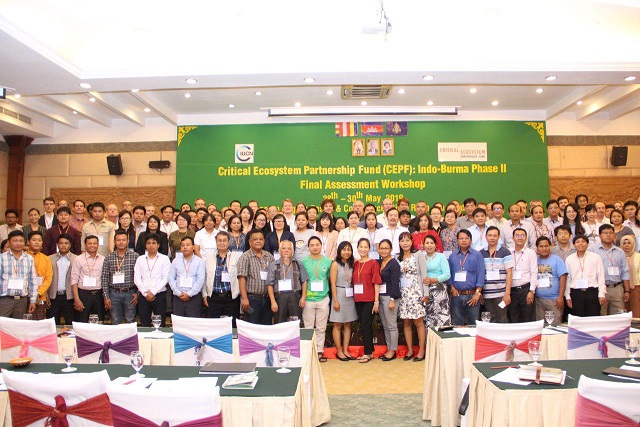Workshop assesses IUCN's strategy for sustainable bioenergy
November 22-24 Doris Cellarius attended a 3-day meeting at IUCN in Gland, Switzerland, as a representative of CEESP to assist in defining IUCN's vision for sustainable bioenergy. The meeting was designed to build stronger linkages between the IUCN Secretariat, its regional offices, Commissions and external partners. The external partners participated in the second day only of the meeting. Those attending included World Wildlife Fund, Conservation International, Wetland International, United Nations Environment Programme and Shell.

Photo:
The meeting began with a review IUCN's existing work on bioenergy. Its current program is based largely on resolutions adopted at IUCN's Barcelona Congress: the Agrofuels and Bioenergy Resolutions and the Resolution on Rural Access to Energy. The group then brainstormed about knowledge gaps related to bioenergy impacts, the energy needs of society, and new ways IUCN could contribute to just, sustainable bioenergy production.
Doris Cellarius writes, "We discussed emerging bioenergy problems such as how governmental mandates have increased pressure to develop new feedstocks, even in countries far from those where the fuels are used. This had worsened indirect impacts such as land use changes that compete with food production, damage biodiversity and threaten livelihoods in local communities. To assist in addressing these problems we agreed IUCN needs to ensure that sustainability principles are adopted and complied with by expand communication to more entities in the global community. Activities should include land use mapping for biodiversity, case studies for documenting “on-the-ground” experiences, and the transfer of information about how countries can encourage development of more effective, protective programs. IUCN is ideally positioned to assist governments in land use planning that can assure that when biofuels projects permitted, they will be sustainable, protect all environmental resources , and benefit local communities.
After evaluating evaluated many possible options, the group wrote a vision statement to help IUCN move forward: “By 2016, bioenergy responsibly contributes to biodiversity conservation, climate change solutions and sustainable livelihoods, as part of building resilient ecological and socio-economic systems.”
For more about the meeting see:
Doris Cellarius
Member, IUCN Commission on Environmental, Economic and Social Policy
Sierra Club representative to Roundtable on Sustainable Biofuels



